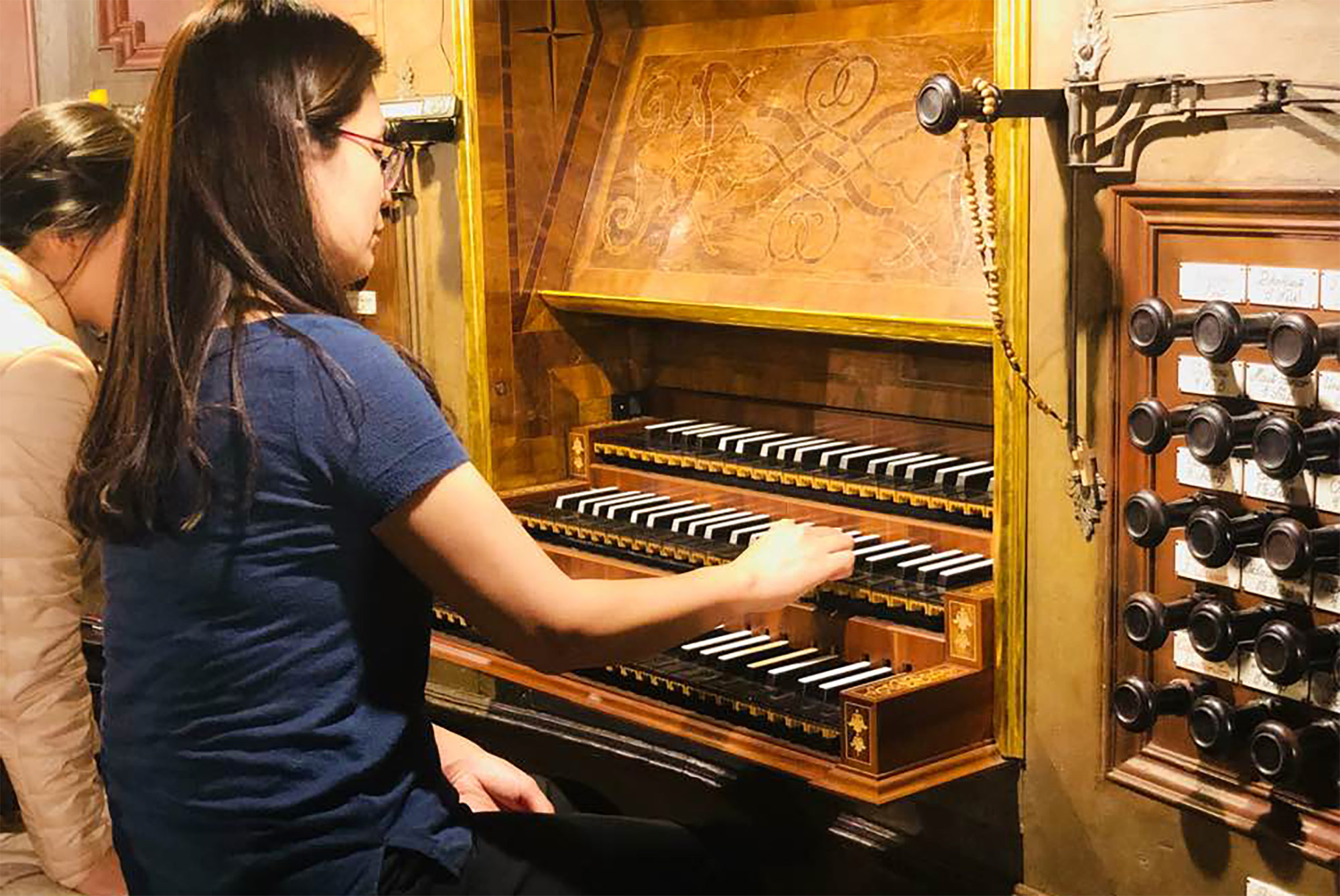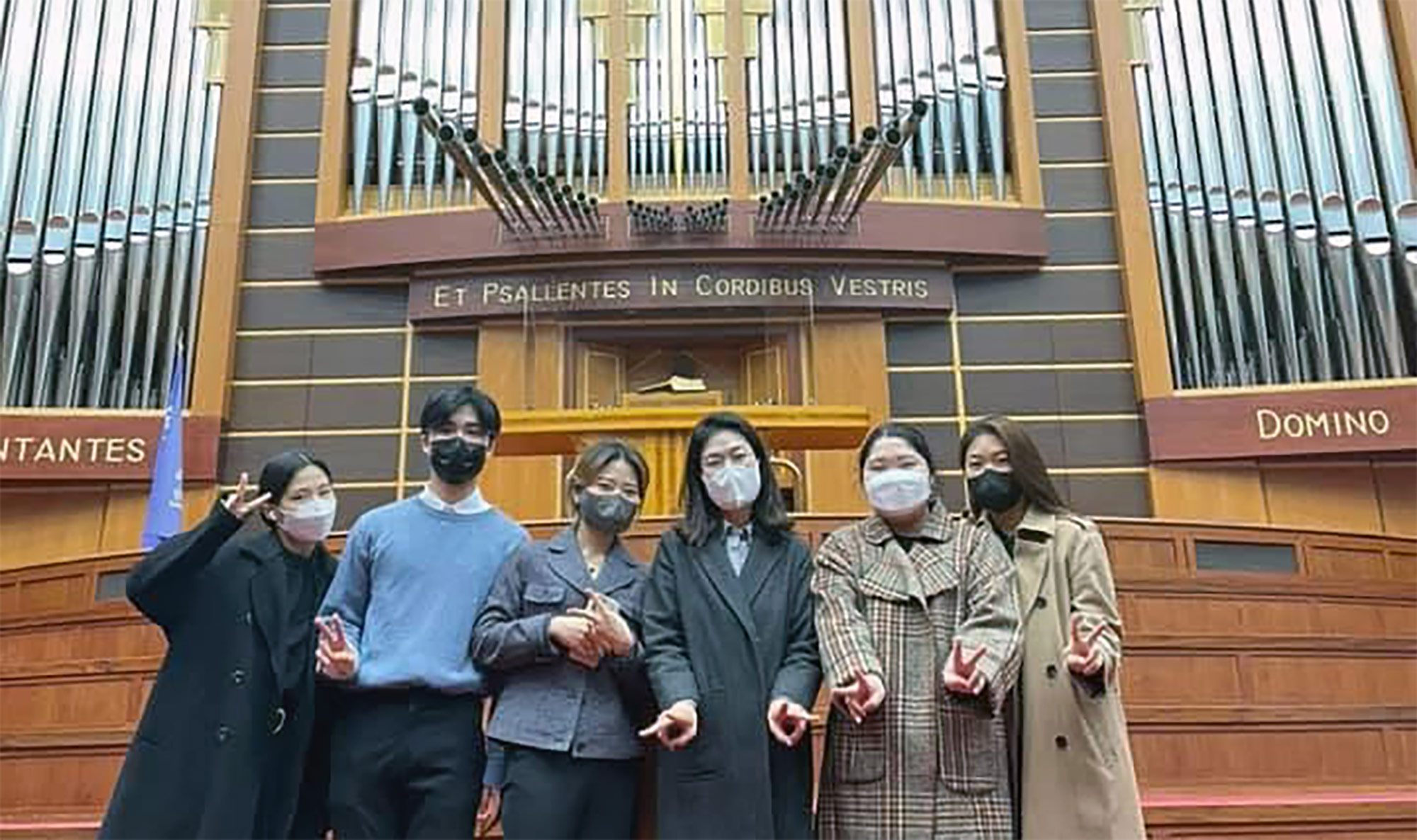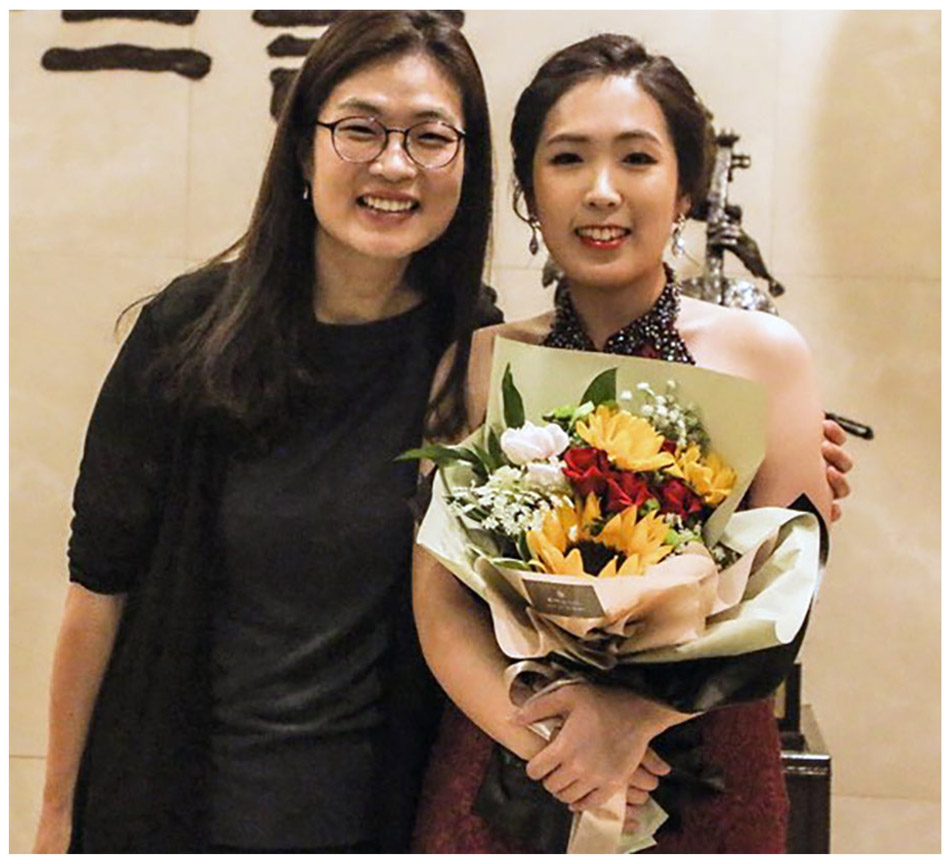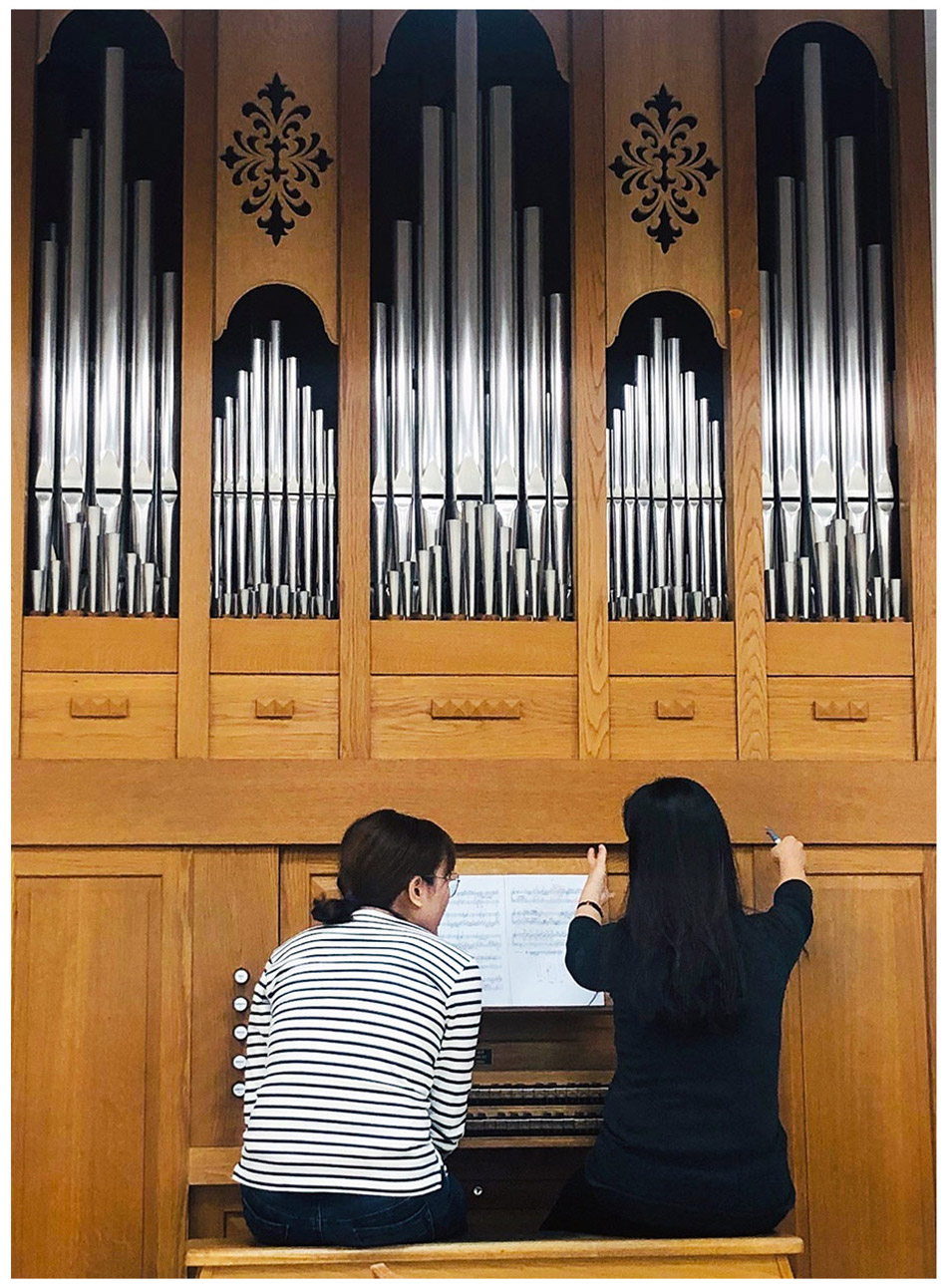

organ teaching philosophy
My goal is helping students develop a high level of technical proficiency and musicality so they may gain diverse experience and build strong careers both as professional concert organists and as church musicians serving in worship leadership roles.
A key aspect of my pedagogy is the integration of theoretical and practical training through the study of organ literature, guiding students in the appropriate selection of repertoire and registration to deepen their understanding of the instrument, and build confidence as performers.
Focus on individualized instruction
My students represent a wide range of ages and skill levels—from middle school to college and adult learners. My teaching philosophy is not a “one- size-fits-all” approach. Every student has unique needs and goals, whereas my focus is on individualized instruction.
While I place strong emphasis on the technical foundations of organ playing—refined touch, a variety of manual techniques, pedal technique, thoughtful registration, and musical interpretation—I also prioritize the study of the organ’s rich history, its construction, and stylistic performance practices across different historical periods and national traditions. Applying these historical insights to real-world performance is essential.
“Beyond time at the instrument”
Many qualities contribute to becoming a great musician. Beyond technical skill, students must be dedicated, possess a strong work ethic, positive attitude, and the ability to collaborate effectively with others. I teach my students that practice is vital, but true practice extends beyond time at the instrument. It includes listening to masterful performances, exploring a variety of musical genres such as orchestral or chamber music, attending live concerts in all styles when possible, and reading broadly in areas related to their interests and repertoire.
Equally important is understanding the spiritual and historical context of the organ’s role in worship. At its core, the organist’s most sacred responsibility as a church musician is to offer the highest quality of music in praise and worship of God.
As Albert Schweitzer wrote:
“If you are called upon to play a church service, it is a greater honour than if you were to play a concert on the finest organ in the world… Thank God each time when you are privileged to sit before the organ console and assist in the worship of the Almighty.”
In faithful service as church musicians
This reflects the very essence of the organ’s presence in the church, and a deep understanding of that history is inseparable from the study of sacred music. Church organs, built as part of historic church architecture, each possess a unique tonal palette and performance style shaped by their time and place. The responsibility of the church organist is to study and master this diversity in order to choose and perform appropriate repertoire for each weekly service.
Thus, one of the most important parts of my teaching philosophy is encouraging students not only to become impressive performers on stage, but to faithfully and consistently serve as church musicians. I guide them to select and interpret music that aligns with the liturgical calendar and Scripture, fostering independence and musical maturity in their roles as worship leaders.

Organ Lesson Information
• Juhee Willow Lee offers private lessons at her home studio located in the Los Angeles area. Please contact her via the CONTACT page for more information.
Masterclasses
• If you are interested in scheduling a masterclass for your school or institution, please reach out to Juhee Willow Lee through the CONTACT page to arrange details.
